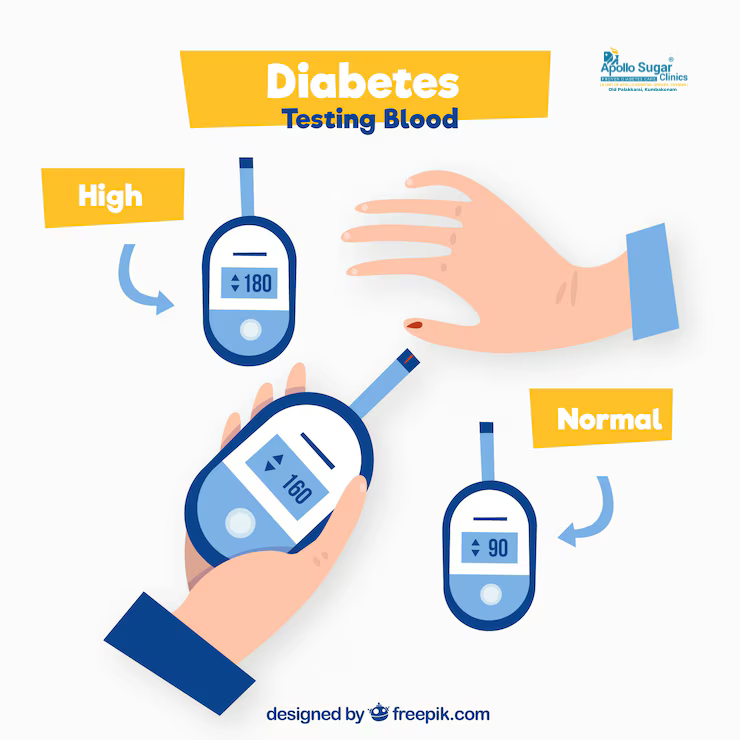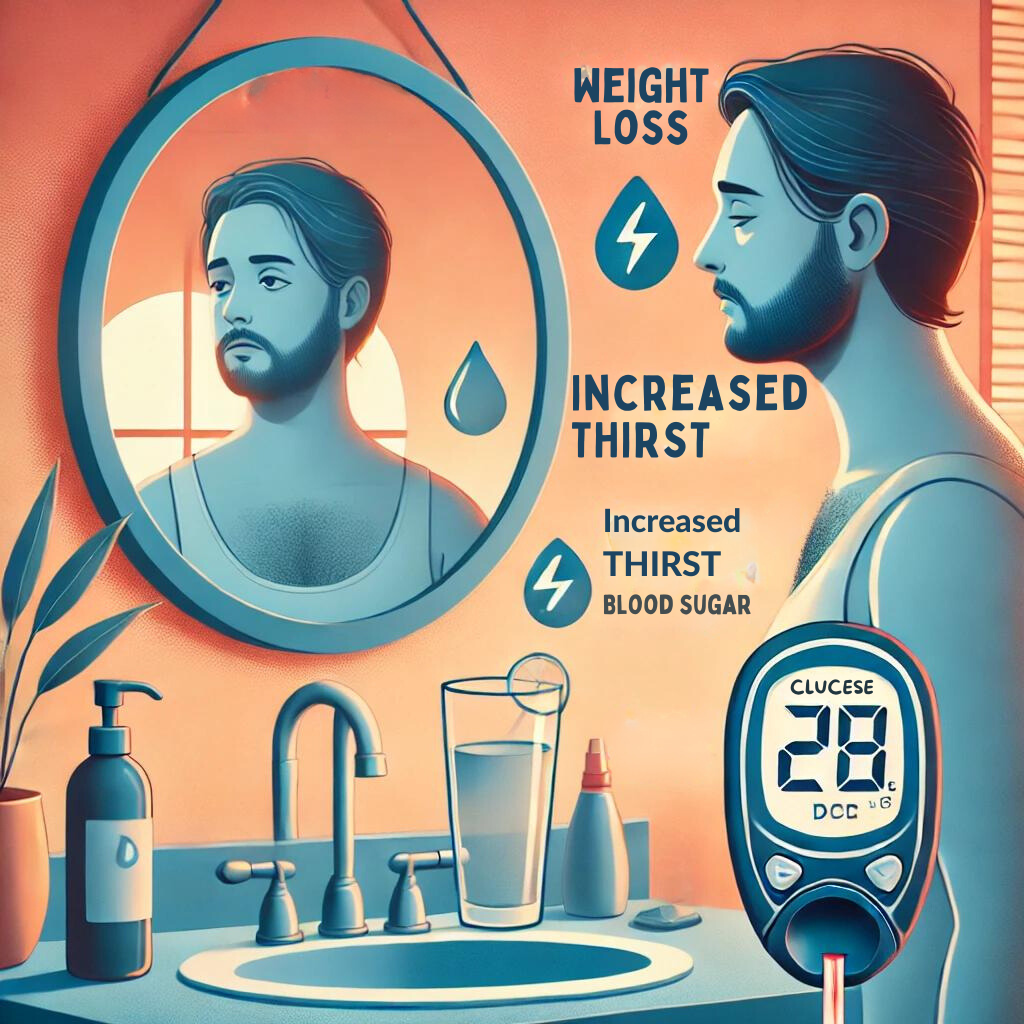Breakfast for Diabetics
Breakfast for Diabetics Nutritious Breakfast Options for Diabetics: Start Your Day Right Introduction Are you or a loved one dealing with diabetes? Managing your diet is crucial for maintaining your overall health and well-being when living with diabetes. At Apollo Sugar Clinics, we specialize in providing comprehensive care and effective dietary recommendations for diabetes to help you live a healthy, balanced life. One of the most important meals to get right is breakfast. The right start to your day can significantly impact your blood sugar levels and energy. In this blog post, we’ll explore some nutritious and delicious breakfast options tailored specifically for individuals with diabetes. Understanding Diabetes and Diet What Is Diabetes? Diabetes is a chronic condition that affects how your body turns food into energy. It occurs when the pancreas does not produce enough insulin or when the body cannot effectively use the insulin it produces. This can lead to elevated blood sugar levels, which over time can cause serious health complications. Managing diabetes effectively involves regular monitoring of blood sugar levels, medication or insulin therapy, and dietary management. The Importance of a Balanced Diet in Diabetes Maintaining stable blood sugar levels is essential for diabetes management. A balanced diet helps achieve this by providing the right mix of carbohydrates, proteins, and fats. Consuming the right types of foods at the right times helps prevent spikes and dips in blood sugar levels. Breakfast, being the first meal of the day, plays a key role in setting the tone for your blood sugar levels. Breakfast for Diabetics What Makes a Good Breakfast for Diabetics? A diabetic-friendly breakfast should include: Low Glycemic Index (GI) Foods: These are foods that release glucose slowly and steadily. High-Fiber Foods: Fiber helps regulate blood sugar levels and keeps you feeling full longer. Healthy Fats and Proteins: These can help stabilize blood sugar and provide sustained energy. Controlled Portions of Carbohydrates: Carbohydrates impact blood sugar levels, so portion control is vital. Nutritious Breakfast Options Here are some delicious and nutritious breakfast options that are perfect for people with diabetes: Oatmeal with Nuts and Seeds: Oatmeal is a great source of fiber and has a low GI. Topping it with nuts like almonds or walnuts and seeds like chia or flaxseed adds healthy fats and protein, making it a balanced meal. Greek Yogurt with Berries and a Sprinkle of Cinnamon: Greek yogurt is high in protein and low in carbohydrates. Adding berries provides a natural sweetness and antioxidants, while cinnamon can help improve insulin sensitivity. Whole Grain Toast with Avocado and Egg: Whole grain toast provides fiber, and avocados offer healthy fats. Adding an egg gives a boost of protein, making this a satisfying and balanced breakfast option. Vegetable Omelette with Spinach, Tomatoes, and Bell Peppers: A vegetable omelette is low in carbohydrates and high in nutrients. Using a variety of colorful vegetables increases the intake of vitamins and minerals. Smoothie with Spinach, Kale, Cucumber, and a Scoop of Protein Powder: Green smoothies are packed with nutrients and fiber. Adding a scoop of protein powder can help keep blood sugar levels stable and provide lasting energy. Foods to Avoid at Breakfast Sugary Cereals and Pastries: These can cause blood sugar spikes due to their high sugar content. White Bread and Refined Carbohydrates: These have a high GI and can quickly raise blood sugar levels. Sugary Drinks: Fruit juices and sugary drinks should be avoided as they can lead to rapid increases in blood glucose. Our Approach to Diabetes Dietary Management Comprehensive Assessment During your initial visit, our experienced healthcare professionals will conduct a thorough assessment to understand your medical history, current health status, and specific dietary needs. This may include blood sugar monitoring, body mass index (BMI) calculation, and other relevant tests. Personalized Meal Planning Based on your assessment, we will develop a personalized meal plan tailored to your unique needs. This plan will focus on including diabetic-friendly foods that help manage blood sugar levels, maintain a healthy weight, and provide essential nutrients. Ongoing Support and Monitoring We provide continuous support and monitoring to ensure your dietary plan is effective. Regular follow-up appointments and consultations help us track your progress, make necessary adjustments, and provide guidance to manage your diabetes effectively. Why Choose Apollo Sugar Clinics? Expertise and Experience: Our team of skilled healthcare professionals specializes in diabetes management, ensuring you receive the best care possible. Patient-Centered Care: Your comfort and well-being are our top priorities. We strive to provide personalized care that addresses your specific needs and concerns. Advanced Technology: We use the latest medical technology and equipment to provide accurate diagnoses and effective treatments. Comprehensive Services: In addition to dietary management, we offer a wide range of diabetes care services to support your overall health. BOOK YOUR APPOINTMENT TODAY! If you or a loved one is managing diabetes, schedule a consultation with us at Apollo Sugar Clinics. Our friendly and knowledgeable staff is here to help you achieve stable blood sugar levels and improve your quality of life with the right dietary choices. F.A.Q Why is breakfast important for diabetics? Breakfast helps kickstart your metabolism and provides the energy you need for the day. For diabetics, a balanced breakfast can help stabilize blood sugar levels, preventing spikes and dips that can lead to complications. What are some good breakfast options for diabetics? Oatmeal with nuts and seeds Greek yogurt with berries Whole grain toast with avocado and egg Vegetable omelet with spinach, tomatoes, and bell peppers Chia seed pudding with almond milk and fresh fruit What foods should diabetics avoid for breakfast? Diabetics should avoid sugary cereals, pastries, white bread, sweetened yogurt, and fruit juices, as these can cause blood sugar spikes. Can diabetics eat fruit for breakfast? Yes, diabetics can eat fruit, but it’s important to choose low-glycemic options such as berries, apples, and pears, and consume them in moderation. Pairing fruit with a protein source like yogurt or nuts can also help stabilize blood sugar.









